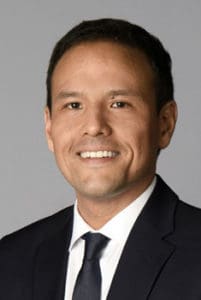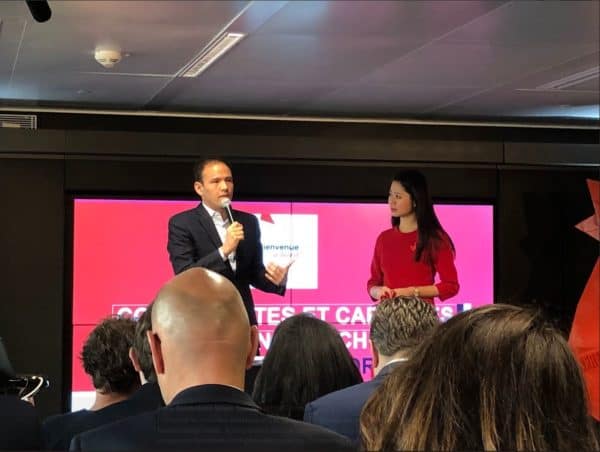Recommended: Paris Shows Off Its Blockchain Ecosystem: Touts the Alignment of Government, Regulation, and Entrepreneurship | Crowdfund Insider
(crowdfundinsider.com)
From April 13 to April 17, the organizers of the Paris Blockchain Week (PBW) lined up a series of events including meetups, hackathons, a PBW Conference hosted by the Ministry of Economy and Finance, and a two-day PBW Summit organized by Woorton, ChainAccelerator and Datalendt at Station F, the largest startup incubator worldwide. The Summit also gathered 1,500 participants.
The Blockchain Week was sponsored by the French Ministry for the Economy and Finance and the Minister of State for the Digital Sector.
framework.

In the past 3 years, the French government has taken a series of measures to foster the #blockchain economy
The French PACTE law was much talked about during the PWB Summit. It provides a unique legal framework for ICOs in the form of a non-mandatory,
voluntary regulation.

Those non-security ICOs which abide by legal requirements such as anti-money laundering and KYC can apply for a VISA from the French Markets and Securities Regulator, the AMF. Granting the VISA amounts to white-listing ICOs.

Brexit effect? France is not the only country in Europe where regulators and government bodies have become pro-innovation.
Michael Gill, Chief of Staff at the US CFTC, adding that his opinion does not necessarily represent the CFTC’s, remarked on the change he observed among European regulators:

European governments increasingly see the blockchain as a geopolitical issue. Beyond finance, decentralized blockchain-powered transaction networks could revolutionize most sectors of the economy, from food to construction and energy distribution.
Wary of too-early regulation, the European Commission wants to encourage the industry to come up with shared principles and interoperability standards to take blockchain applications to the next level.
To this end, Peteris Zilgavis pointed out, the Commissioner for Digital Economy and Society Mariya Gabriel officially launched the International Association for Trusted Blockchain Applications (IATAB) earlier this month.
The IATAB gathers more than 100 members including large corporations such as BBVA, Engie, or L’Oréal, together with public agencies such as Deutsche Börse and Caisse des Dépôts, and blockchain firms and foundations such Ripple, Ledger, the Enterprise Ethereum Alliance, and the IOTA foundation. Many more have applied to join.

Hopes for a blockchain-powered economy are high but the road ahead is long and arduous. It is up to entrepreneurs, not regulators or the government, to drive blockchain out of the lab, into the real economy and mass markets.
The PWB Summit showed how vibrant the French ecosystem of blockchain and crypto-asset entrepreneurs is and how well it is connected to the global one.Binance, Ledger, and many other reputed firms of sector sponsored the event.
Transaction speed, energy consumption, efficient consensus algorithms (Tendermint), governance models (Tezos), interoperability (Wanchain), infrastructure, public vs private blockchains, and compliance (Scorechain) were among the many and diverse blockchain challenges discussed.
Since the 2018 crash of cryptocurrencies, the new business models based on slapping blockchain on a vague business idea that never needed one are gone.Since the 2018 crash of cryptocurrencies, the new business models based on slapping blockchain on a vague business idea that never needed one are gone

One could still hear promises of disruption or revolution, for example by eToro, the social trading platform announcing its crypto-trading platform eToroX.
Celsius Network also spoke of revolution when it described its crypto-lending operations “with no origination or closing fees, no penalties, no early termination fees, and no default fees,” which also offers interest rates on deposits. Indeed!
But many companies also presented permission blockchains with more mundane goals of improving corporate processes.All participants agreed that the buzz of the PWB Summit was overly positive and energizing.
This was in no small part due to the tireless energy of the organizers from Woorton, a crypto market-maker trading digital asset with proprietary technology, Chain Accelerator, a project and startup accelerator based in Station F, and Datalents, an HR startup specialized in AI and blockchain.
Charlie Méraud, Karim Sabba, and Zahreddine Touag of Woorton deserve a special credit as co-creators of the Paris CryptoMondays, a regular meeting place that has cemented the local blockchain and digital asset community.


Therese Torris, PhD, is a Senior Contributing Editor to Crowdfund Insider. She is an entrepreneur and consultant in eFinance and eCommerce based in Paris. She has covered crowdfunding and P2P lending since the early days when Zopa was created in the United Kingdom.
She was a director of research and consulting at Gartner Group Europe, Senior VP at Forrester Research and Content VP at Twenga.
She publishes a French personal finance blog, Le Blog Finance Pratique.
The French Government Bets On The Blockchain
The Blockchain Week was sponsored by the French Ministry for the Economy and Finance and the Minister of State for the Digital Sector.
“I believe in the blockchain, I believe in this technology,” declared Bruno Le Maire, the Minister of Industry for the Economy and Finance at the PBW Conference, adding that with respect to the blockchain France was choosing to “be ahead of time rather than to be late.”France hopes to become a leader in blockchain by creating a supportive environment through investments and a favorable legal and regulatory
framework.

Indeed, in the past 3 years, the French government has taken a series of measures to foster the blockchain economy. These included changing the tax regime for cryptoasset gains, requiring that banks open bank accounts for blockchain businesses, launching several pilots of blockchain applications in the public administration, and passing the PACTE Law which creates a legal framework for Initial Coin Offerings (ICOs) of utility tokens.
“Our priority is to build the French ecosystem… We don’t have as big players as, for example, China, but as an ecosystem with [a proper] financial regulation, we’re not late,” said Cédric O, the Secretary of State for Digital Affairs at the PBW Summit. “Corporations will be attracted by the fact that we’re building transparency, clarity, and visibility.”
In the past 3 years, the French government has taken a series of measures to foster the #blockchain economy
A Turning Point in French and European Regulation
The French PACTE law was much talked about during the PWB Summit. It provides a unique legal framework for ICOs in the form of a non-mandatory,
voluntary regulation.

Those non-security ICOs which abide by legal requirements such as anti-money laundering and KYC can apply for a VISA from the French Markets and Securities Regulator, the AMF. Granting the VISA amounts to white-listing ICOs.
“Now, we see US [crypto-asset issuer] firms coming to France to get a VISA as a form of EU passport,” said Frank Guiader, Director of Innovation & Fintech at Law consultancy Gide 255 and a former Head of Fintech at the AMF.
“It is the first time that we see such a clear alignment between the government vision, the regulation, and the promotion of innovation.” His colleague Matthieu Lucchesi, added.France is seeing US based crypto asset issuers apply for visas #Blockchain #ICOs

Brexit effect? France is not the only country in Europe where regulators and government bodies have become pro-innovation.
“There are more and more pro-innovation civil servants,” said Peteris Zilgavis, Head of Unit Startups & Innovation, Digital Single Market at the EU Commission.Patrick Amstrong, a Senior Officer at the European Securities and Markets Authorities (ESMA) contrasted the positive regulation European approach with the US one:
“The SEC took the approach that all tokens are securities and asked companies to prove that their coins were not. We took the reverse position to examine case by case which tokens are utilities.”The SEC took the approach that all tokens are securities and asked companies to prove that their coins were not. We took the reverse position to examine case by case which tokens are utilities #France
Michael Gill, Chief of Staff at the US CFTC, adding that his opinion does not necessarily represent the CFTC’s, remarked on the change he observed among European regulators:
“Europe has stepped forward. Two years ago, European regulators were very skeptical…The US would be loath to adopt anybody else’s regulation…” but it might be what it should do.

European governments increasingly see the blockchain as a geopolitical issue. Beyond finance, decentralized blockchain-powered transaction networks could revolutionize most sectors of the economy, from food to construction and energy distribution.
Wary of too-early regulation, the European Commission wants to encourage the industry to come up with shared principles and interoperability standards to take blockchain applications to the next level.
To this end, Peteris Zilgavis pointed out, the Commissioner for Digital Economy and Society Mariya Gabriel officially launched the International Association for Trusted Blockchain Applications (IATAB) earlier this month.
The IATAB gathers more than 100 members including large corporations such as BBVA, Engie, or L’Oréal, together with public agencies such as Deutsche Börse and Caisse des Dépôts, and blockchain firms and foundations such Ripple, Ledger, the Enterprise Ethereum Alliance, and the IOTA foundation. Many more have applied to join.
The Entrepreneurs

Hopes for a blockchain-powered economy are high but the road ahead is long and arduous. It is up to entrepreneurs, not regulators or the government, to drive blockchain out of the lab, into the real economy and mass markets.
The PWB Summit showed how vibrant the French ecosystem of blockchain and crypto-asset entrepreneurs is and how well it is connected to the global one.Binance, Ledger, and many other reputed firms of sector sponsored the event.
Transaction speed, energy consumption, efficient consensus algorithms (Tendermint), governance models (Tezos), interoperability (Wanchain), infrastructure, public vs private blockchains, and compliance (Scorechain) were among the many and diverse blockchain challenges discussed.
Since the 2018 crash of cryptocurrencies, the new business models based on slapping blockchain on a vague business idea that never needed one are gone.Since the 2018 crash of cryptocurrencies, the new business models based on slapping blockchain on a vague business idea that never needed one are gone

One could still hear promises of disruption or revolution, for example by eToro, the social trading platform announcing its crypto-trading platform eToroX.
Celsius Network also spoke of revolution when it described its crypto-lending operations “with no origination or closing fees, no penalties, no early termination fees, and no default fees,” which also offers interest rates on deposits. Indeed!
But many companies also presented permission blockchains with more mundane goals of improving corporate processes.All participants agreed that the buzz of the PWB Summit was overly positive and energizing.
This was in no small part due to the tireless energy of the organizers from Woorton, a crypto market-maker trading digital asset with proprietary technology, Chain Accelerator, a project and startup accelerator based in Station F, and Datalents, an HR startup specialized in AI and blockchain.
Charlie Méraud, Karim Sabba, and Zahreddine Touag of Woorton deserve a special credit as co-creators of the Paris CryptoMondays, a regular meeting place that has cemented the local blockchain and digital asset community.

Cedric O & Kat Borlongan, directrice de la Mission French Tech

Therese Torris, PhD, is a Senior Contributing Editor to Crowdfund Insider. She is an entrepreneur and consultant in eFinance and eCommerce based in Paris. She has covered crowdfunding and P2P lending since the early days when Zopa was created in the United Kingdom.
She was a director of research and consulting at Gartner Group Europe, Senior VP at Forrester Research and Content VP at Twenga.
She publishes a French personal finance blog, Le Blog Finance Pratique.
-
- 1
Francisco Gimeno - BC Analyst Mark our words: The Paris Summit is a point of inflexion not just for the EU but globally for the adoption of the blockchain. France is convinced that it has to be at the lead. The new French laws, their open approach to the 4th IR, is very encouraging. We expect to see strong results from this new revolution in the next twelve months.








